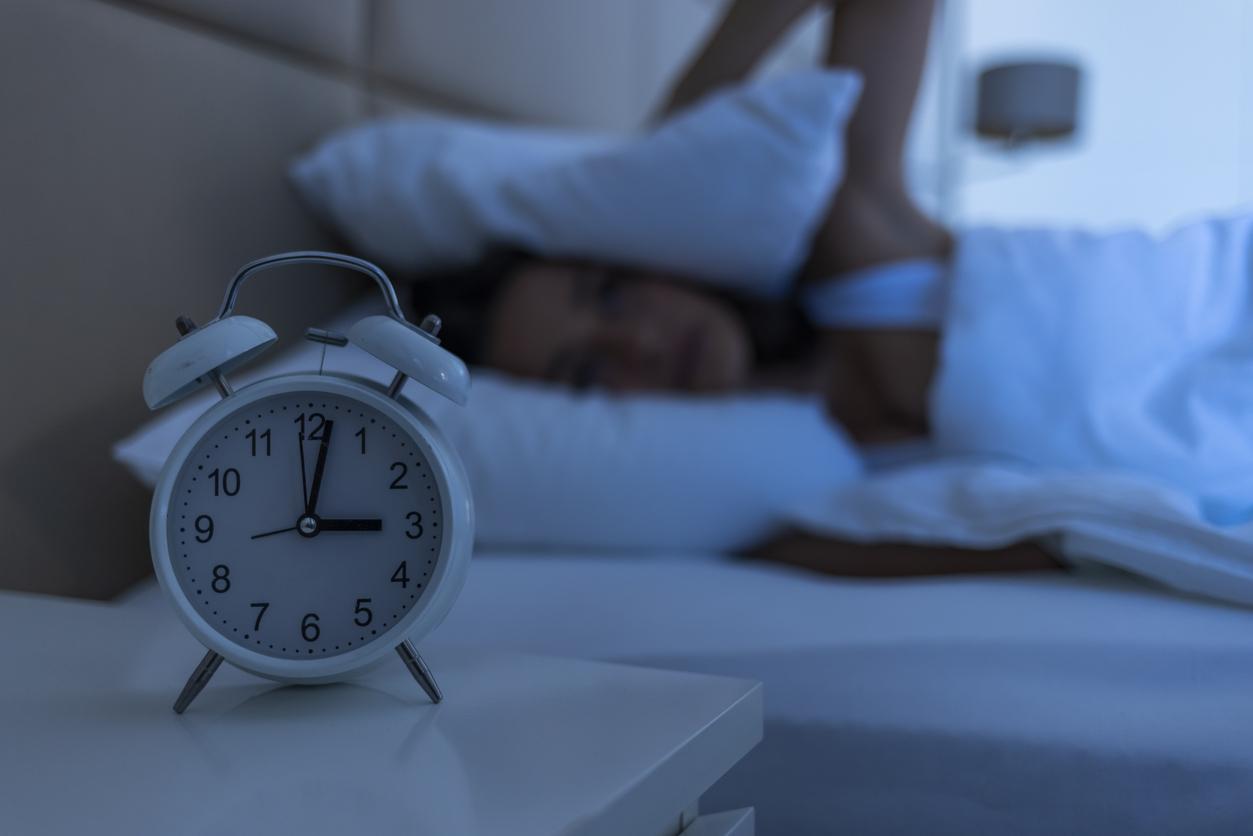People experiencing sleep disorders around age 40, such as difficulty falling asleep, have more signs of brain aging when they reach their late 50s.

- Sleep disorders at the age of 40 have consequences on brain health around fifteen years later.
- These problems are associated with a brain age 3 years older on average, compared to people with almost no sleep problems at 40 years old.
- This aging is accentuated when sleep disorders persist, consistently, for five years.
At least one in five people suffer from a sleep disorder in France, according toInserm. Insomnia is the most common of these. However, poor quality nights are harmful to your health. A recent study, published in the specialized journal Neurologyconfirms it. According to its findings, people aged 40 affected by sleep disorders have more signs of poor brain health in their late 50s.
A study lasting more than fifteen years to understand the effects of sleep on brain aging
“Sleep problems have been linked in previous research to poor thinking and memory skills later in life, putting people at higher risk of dementia.underlines the author of the study Clémence Cavaillès of the University of California in San Francisco. With this work, the scientist and her team sought to understand the effects of these disorders on brain aging. They recruited 589 people, aged 40 on average at the start of the work. Participants completed questionnaires about their sleep when the study began and again five years later. The questions were, for example: “Do you usually have trouble falling asleep?“, “Do you usually wake up several times a night?” And “Do you usually wake up way too early?“.
Six characteristics were established to qualify sleep quality: short sleep duration, poor sleep quality, difficulty falling asleep, difficulty staying asleep, early morning awakening and daytime sleepiness. Participants were divided into three groups: those in the low group had no more than one poor sleep characteristic, those in the medium group had two to three, and those in the high group had more than three. “At the start of the study, approximately 70% of participants were in the low group, 22% in the medium group, and 8% in the high group.note the authors. In addition to these questionnaires, brain scans were carried out 15 years after the start of this research.

Nearly three years of additional brain aging in the event of sleep disorders
After analyzing these exams, the researchers found that the average brain age of the intermediate group was 1.6 years higher than that of the low group. In comparison, that of the high group was 2.6 years greater compared to that of people in the first group. “Poor sleep quality, difficulty falling asleep, difficulty staying asleep, and early morning waking were linked to greater brain aging, particularly when people had these poor sleep characteristics consistently over five years.”add the scientists.
For Kristine Yaffe, co-author of the study, of the University of California at San Francisco and member of the American Academy of Neurology, these results underline the importance of quickly treating sleep disorders to preserve health. cerebral. This specialist gives several tips:maintain a regular sleep schedule, exercise, avoid caffeine and alcohol before bed, and use relaxation techniques”.
















